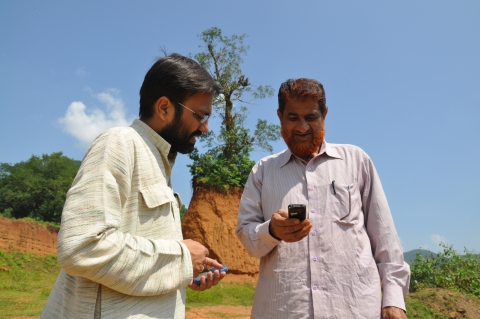
Former Knight Fellow Shu Choudhary trains a villager in India how to use CGnet Swara, a mobile news service.
Mobile news service CGnet Swara was recently featured on National Geographic as part of its "Innovators Project" series, which profiles “people who are transforming their fields by creating, educating, provoking, and delighting.”
Developed by Knight Fellow Shubhranshu Choudhary with help from Microsoft Research India, CGnet Swara (Voice of Chhattisgarh) gives people in remote areas of India the ability to send and receive news reports in their local languages using mobile phones.
Once verified by professional journalists, the CGnet Swara team makes the audio reports public on a server. The community can simply call the server to access the news in their own language. Choudhary also posts the stories in English and Hindi on a CGnet Swara website, which gives these issues a national and global reach. Since 2010, officials have directly addressed at least 120 issues first reported by the service.
According to National Geographic, CGnet Swara gives a “voice to the voiceless,” allowing isolated villagers to share their stories with each other and the world.
Read the full Nat Geo story: In Jungles of India, New Phone App Helps Indigenous Tribes Embroiled in Maoist Insurgency.